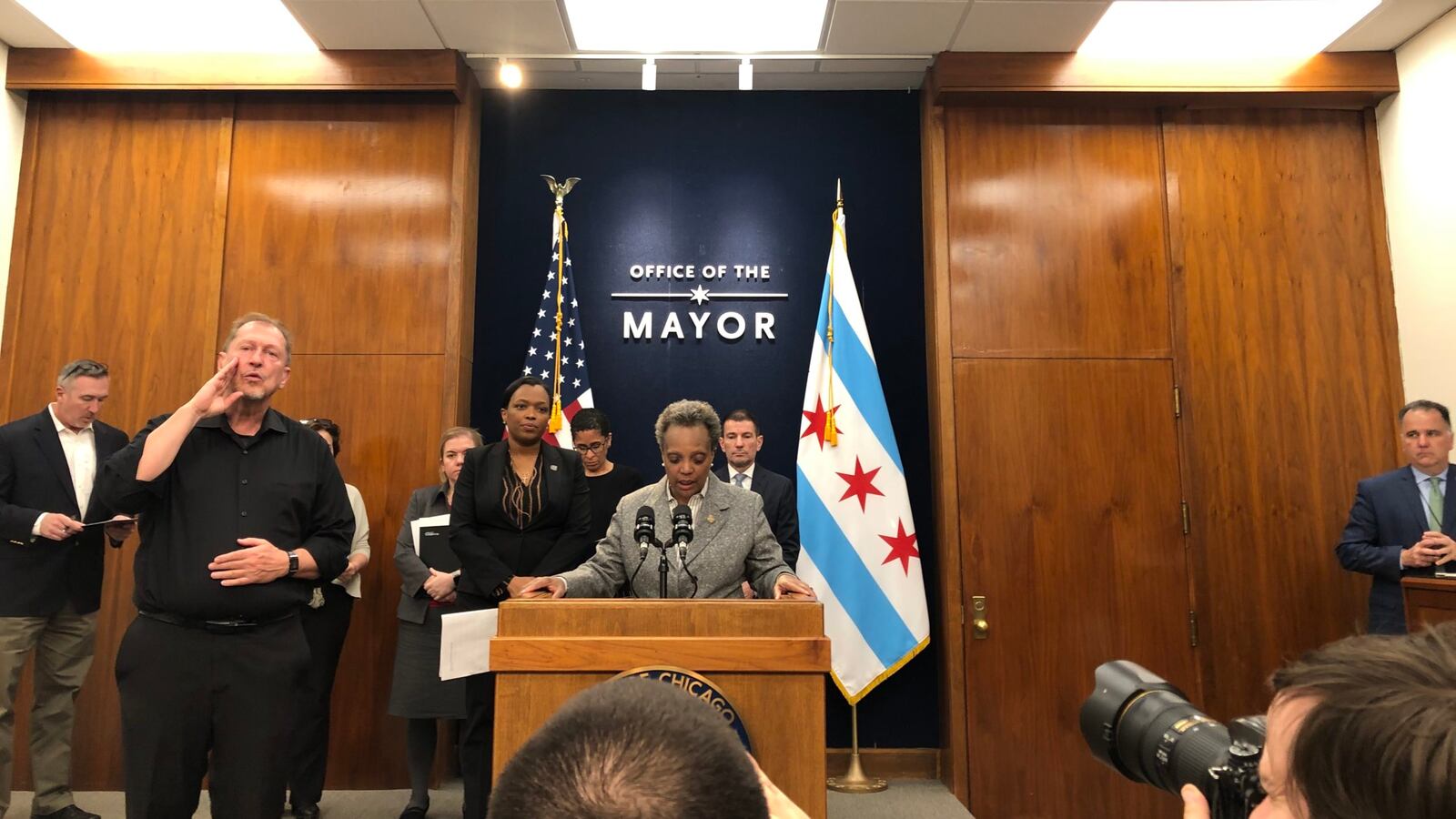While its schools will be suddenly closed for two weeks to guard against the coronavirus, Chicago will coordinate food distribution centers, run drop-off child care programs at 18 parks, and on Monday send home packets of schoolwork with students.
But Chicago Public Schools won’t be rolling out a robust remote-learning plan, like some suburban school districts have promised to do. While schools will be encouraged to share passwords for Google classroom sites to enable some online learning, students are mostly encouraged to attend school Monday and pick up “enrichment activities,” schools chief Janice Jackson said.
“We’re not set up where we can replicate an entire student day through an online system,” Jackson said, referencing a concern of schools across the country that don’t have enough devices for students, infrastructure for e-learning, or staff trained to teach virtually.
Gov. J.B. Pritzker issued a statewide edict to close schools late Friday, just hours after Chicago’s mayor, Lori Lightfoot, said she planned to keep schools open. The order affects 2 million students and extends through Monday, March 30. It starts Tuesday so that teachers have the weekend and an extra day to plan.
That means Chicago students will return to school for four days, then go on spring break April 6-10. Although the state asked districts to change schedules so that the break coincides with the school closures, Chicago has not decided what it will do.
“The district is focused on making sure to implement the order as directed today,” Jackson said. “If there’s a need to be flexible and change, we will.”
Related: Find our live blog about coronavirus and Chicago schools here
The mayor skirted questions about whether she disputed the governor’s decision.
“The governor has an entire state to consider,” she said. “I am focused on what is in the best interest of Chicago. Our circumstances are different.”
The mayor said she and Pritzker are in “locked arms about how to support families” and focused on coordinating what happens next. “We’re not focused on the why, but the how.”
Chicago, where 78% of the city’s public school children are low-income, faces big logistical challenges including feeding the majority of children who normally receive subsidized meals at school, and providing fill-in child care. The city laid out some preliminary plans.
Jackson said there was a plan to distribute three days worth of food at a time through distribution centers for families who need meals. The district will stock several centers, which will be open from 9 a.m. to 1 p.m., starting Tuesday when schools close, Jackson said. Families may call 773-553-KIDS for emergency delivery.
Even though the overall message from the mayor was “stay home,” Lightfoot said she recognized that’s not an option for some workers and for health care workers in particular.
The Chicago Park District, which is not covered by the mandate, will run 18 sites where parents may drop off children for emergency child care, parks CEO Michael Kelley said.
City libraries will also be open.
So far, the state-mandated closure also does not extend to the city’s community-run preschools and early learning centers, the mayor said. But the commissioner in charge of the city’s Department of Family and Support Services said her office was still waiting on guidance from the governor’s office on that.
Teachers will be paid for the two weeks of closure, Lightfoot said. She said the city will give all of its employees additional paid time off and will allow personnel to work from home where possible.

